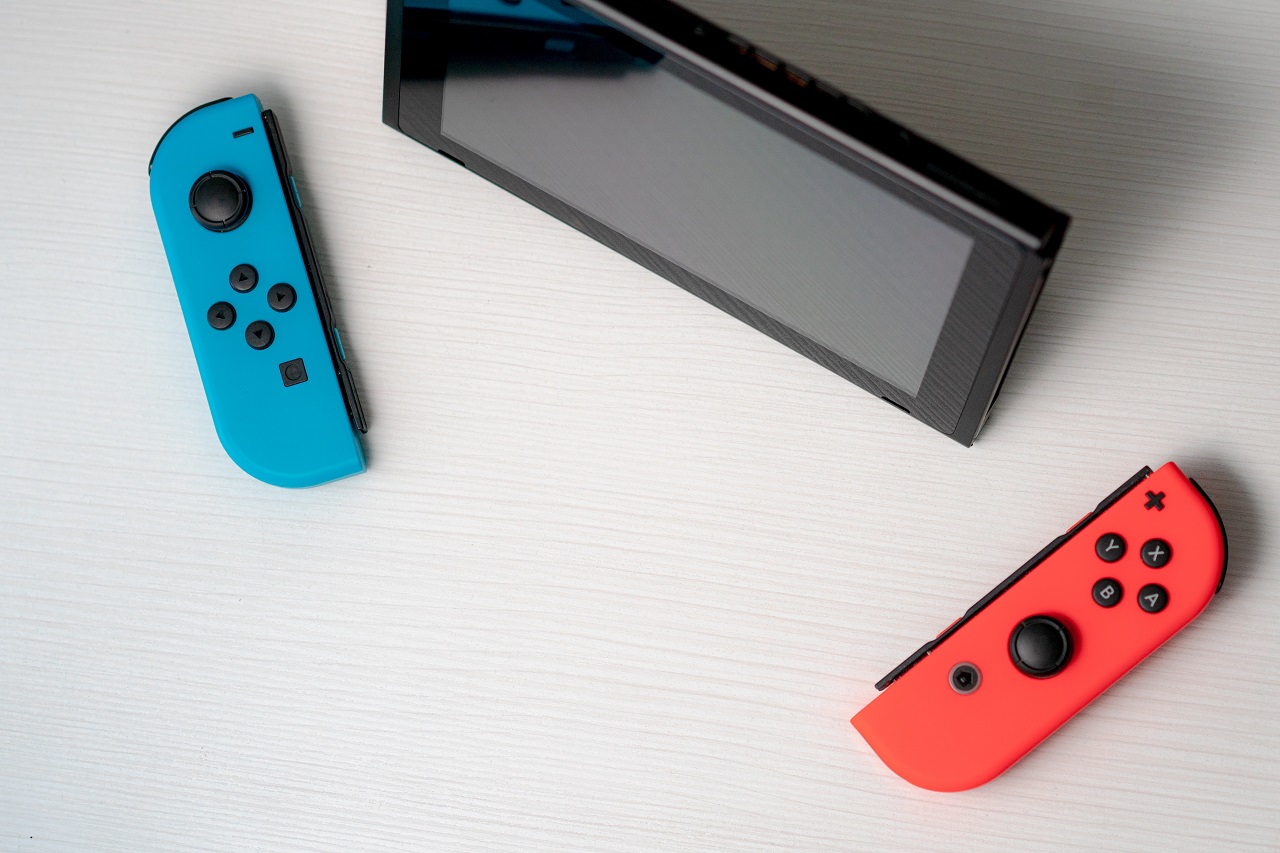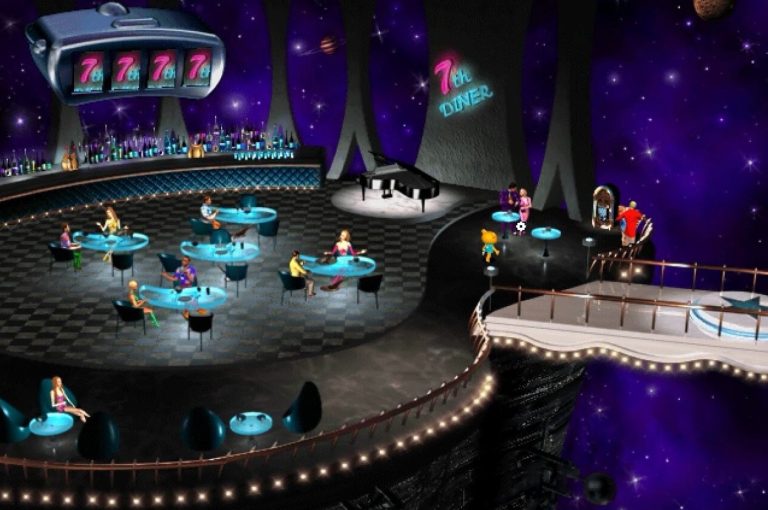Original Japanese text written by. Ryuki Ishii
Translated by. Marco Farinaccia
“I have come to believe that games with leveling systems are a complete waste of time.” This is the title of an opinion piece posted to the Japanese anonymous blog site Hatelabo::AnonymousDiary that has struck up a discussion among Japanese gamers and developers.
The author expresses their thoughts about games that include the concept of a leveling system, saying that “all the actions taken within these games are not accomplished through the advancement of the player’s own skill level, but are instead the result of simply raising character levels.” They have come to feel that such systems are an utter waste of time.
“Games should do away with leveling. Players should do away with games that have leveling”

The author explains that they want to experience the actual feeling of improving as a player but claims that games where you level up prevent this. “Even if you try to advance through careful planning or trial and error, there is always doubt and uncertainty that sits in the back of your mind. Things like, ‘I could probably beat this by just leveling up a bit more,’ or ‘no matter how much effort I put in, I probably still need to increase my level to stand a chance.’ It leads to a lot of anxiety.”
They likened leveling up to “being handed a crayon and piece of paper and told to completely color the paper in a single color.” Adding, “Long ago, when the concept was first created in tabletop RPGs, levels served the important role of indicating the degree of challenge and symbolizing the player’s standing within the game world. However, at some point, levels have become meaningless.”
The majority of games in recent years are said to be dependent on levels, with the author describing the system as “a magic potion that makes something feel like a game.” They bring their piece to a finish with the following message: “Games should do away with leveling. Players should do away with games that have leveling. We don’t need them anymore. Look at Mario, one of the most loved games in the world. There’s no leveling in his world. Splatoon has player ranks, but it doesn’t have character levels. Real games don’t have nonsense like leveling systems. All these fake games, be gone!”
Is having a leveling system the problem, or is it the process of leveling up?

Although quite drastic, the author’s viewpoint left a strong impact. This may be why a great number of readers left comments giving their own thoughts. There were a wide variety of opinions, like, “It’s not levels that are the problem, it’s the process of leveling up that sucks. Don’t you agree?” “If you don’t like leveling up then you should just play games that are aimed at people who don’t like leveling up,” and “I don’t like games where you have no choice but to level up, but I also don’t like games where I don’t have the option to level up. (I’m selfish.)”
Some people believe that a leveling system acts as support for players who aren’t good at games. Others had no problem with leveling up but were opposed to games that use level gating and try to encourage the purchase of experience boosting items.
The opinion piece treats all games with leveling systems as part of the same group, but the actual process of leveling up can differ greatly based on the game and genre. Each game also calls for a different ratio between raising character levels and improvement of the player’s own skills. There are many games that include leveling systems but still place great importance on player skill.
As it ultimately hinges on the design and circumstances of each game, it is difficult to come to a definite conclusion. Thus, it results in an unending debate with many diverse opinions from people who view the topic from different angles.
It doesn’t necessarily mean that there’s no room for player growth or creativity
Some game developers have also shared their views on the topic. On Twitter, Japanese indie developer Renji Nikaido said that the spread of games in Japan where simply raising your level will lead to victory is likely due to the influence of Dragon Quest. He believes that a major factor is that “there are quite a lot of people who aren’t very good at improving their own skills or tackling challenges with trial and error.”
“Games where you can raise your characters become favorable because you can achieve results without having to think about anything complicated. This makes them simple and means that anyone can play them. When developers consider what kind of game to make if they want to sell a lot of copies, it becomes the natural choice.”
He also expressed the thought that people might have less of a problem with it if they treat games with a leveling system as “games where you are training someone other than yourself,” since humans are creatures that intrinsically enjoy raising others.
Considering things from a different angle, he said, “Now, in regard to whether games with leveling can provide opportunity for player growth or ingenuity, then I believe that they absolutely can. If you start thinking about the most efficient way to become stronger or how to come up with the most powerful character builds, then this gives birth to creativity and planning.”
“The majority of games with leveling are balanced so that as the player progresses, the rewards they obtain also increase. If you train your characters until they are strong enough to dispatch bosses in an instant, then you could be overspending your time leveling up characters. If you instead attempt to defeat a boss at the lowest possible level you can, then the rewards that await you will be even sweeter, and the game will be more entertaining. In that sense, you could also say that the author of the opinion piece did not attempt to incorporate any planning or creativity in the way they raised their characters.”
Nikaido finished his series of tweets by mentioning one of the merits of a leveling system: “Games these days are much more complex, so trying to explain all elements to the player at once results in an overload of information that creates confusion. In order to avoid this, you need to gradually introduce elements over time. A leveling system is a perfectly appropriate way to deal with this kind of situation.”

A self-proclaimed game designer who possesses similar thoughts to Nikaido regarding the benefits of a leveling system posted in the comment section of the opinion piece. They explained that by setting a suitable level that a boss can be defeated at, skilled players can achieve victory at a lower level while unskilled players can still get the desired result by being at a higher level. Thus, a leveling system allows adjustment of the difficulty and provides a wider range of ways to play.
They also provided examples of other advantages, such as adjusting the speed of progression through the game, using leveling up as a reward, and having levels act as a kind of tutorial where new skills are unlocked bit by bit.
The same user explained that, ultimately, a leveling system is just one possible option in game design, and it is not necessarily the most optimal solution. “If you hate leveling, then I think you should just play games without levels,” they said.
Leveling systems have their own unique merits, and the opinion that they should be completely discarded is rather excessive. (Though it may be precisely because it’s excessive that it has become such a hot topic.)
The response from Takashi Hamamura, a designer who worked on the Kirby series
Takashi Hamamura, known for his work as a game designer on many titles in the Kirby series, also discussed the topic on his personal Twitter account.
Regarding leveling systems
It’s natural to think of leveling as an element that is related to a character’s degree of ability, but I tried thinking about it in a slightly more abstract way.
By doing so, I’ve come to see that levels are the asset or result and not the process itself. Playing games is the act of enjoying the process.
In the short manga attached to the tweet, Hamamura explains that if you think about of leveling in an abstract way, it is the accumulation of assets for the player. These assets represent the result, while games themselves are the act of enjoying the process to arrive at that result. Therefore, if you don’t design the game so that the process is fun, then it will be boring to play, regardless of whether you have a leveling system or not.
It’s important to think of the enjoyment of the “process” as distinct from the “result/assets/leveling.” Rather than a debate about whether leveling systems are bad, it becomes a question of whether the process of leveling up is fun.
He finishes his argument by saying, “Recent games that are made as ‘commercial product’ aim to provide players with a long playtime. However, if the game systems are not integrated in a skillful manner, then it results in a very bland experience. With this in mind, you can see why resentment for games with leveling systems grows so easily.”
There are different pros and cons to leveling systems, but at the end of the day, it all depends on whether or not the developers can create an entertaining process. You may or may not agree with the views presented in the above-mentioned opinion piece, but it has certainly provided a great opportunity to rethink what it means to have leveling systems in games.





